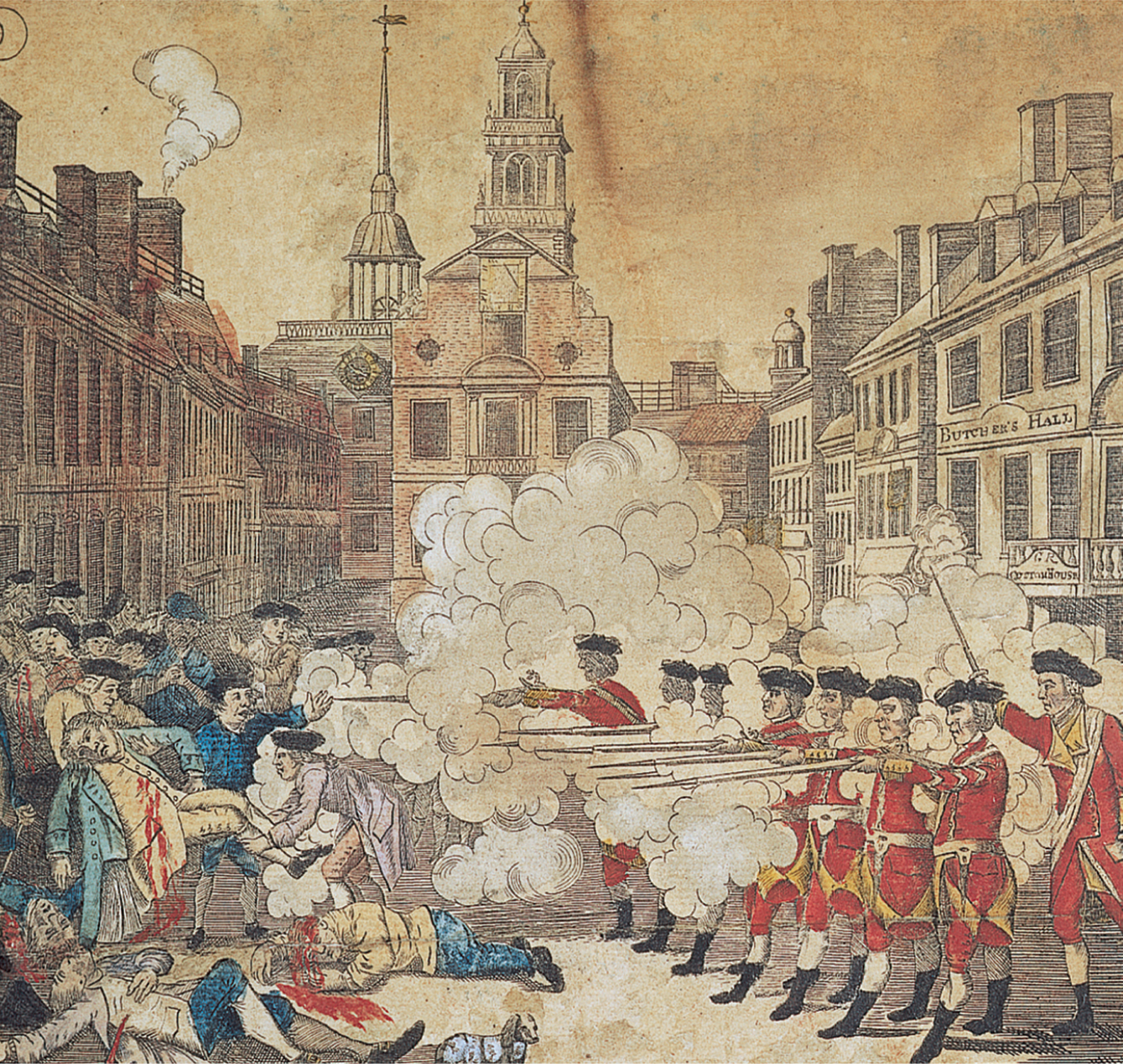The American Promise:
Printed Page 153
The American Promise Value
Edition: Printed Page 144
Military Occupation and “Massacre” in Boston
In the fall of 1768, three thousand uniformed troops arrived to occupy Boston. The soldiers drilled conspicuously on the town Common, played loud music on the Sabbath, and in general grated on the nerves of Bostonians. Although the situation was frequently tense, no major troubles occurred that winter and through most of 1769. But as January 1, 1770, approached, marking the end of the nonimportation agreement, it was clear that some merchants—
Trouble began in January, when a crowd smeared the door of the Hutchinson brothers’ shop with excrement. In February, a crowd surrounded the house of a confrontational customs official who panicked and fired a musket, accidentally killing a young boy passing on the street. The Sons of Liberty mounted a massive funeral procession to mark this first instance of violent death in the struggle with Britain.

For the next week, tension gripped Boston. The climax came on Monday evening, March 5, 1770, when a crowd taunted eight British soldiers guarding the customs house. Onlookers threw snowballs and rocks and dared the soldiers to fire; finally one did. After a short pause, someone yelled “Fire!” and the other soldiers shot into the crowd, hitting eleven men, killing five of them.
The Boston Massacre, as the event was quickly labeled, was over in minutes. Hutchinson, now acting governor of the colony, showed courage in addressing the crowd from the balcony of the statehouse. He immediately removed the regiments to an island in the harbor to prevent further bloodshed, and he jailed Captain Thomas Preston and his eight soldiers for their own protection, promising they would be held for trial.
The Sons of Liberty staged elaborate martyrs’ funerals for the five victims. Significantly, the one nonwhite victim shared equally in the public’s veneration. Crispus Attucks, a sailor and rope maker in his forties, was the son of an African man and a Natick Indian woman. A slave in his youth, he was at the time of his death a free laborer at the Boston docks. Attucks was one of the first American partisans to die in the revolutionary struggle with Britain, and certainly the first African American.
At trial in the fall of 1770, the eight soldiers were ably defended by two Boston attorneys, John Adams and Josiah Quincy. While both had direct ties to the leadership of the Sons of Liberty, Adams was deeply committed to the principle that even unpopular defendants deserved a fair trial. Samuel Adams respected his cousin’s decision to take the case, for there was a tactical benefit as well. It showed that the Boston leadership was not lawless but could be seen as defenders of British liberty and law. The five-
REVIEW Why did British authorities send troops to occupy Boston in the fall of 1768?